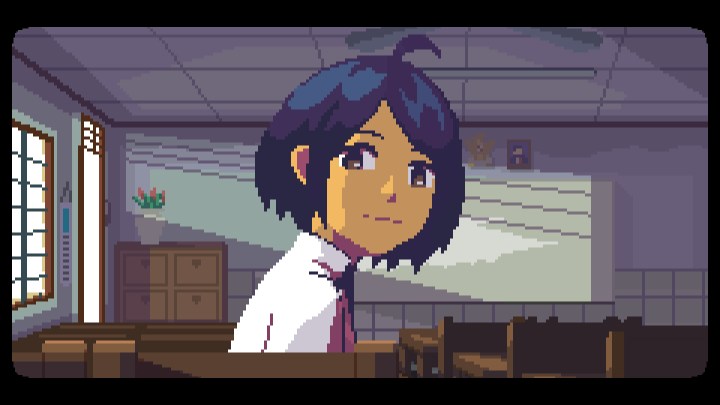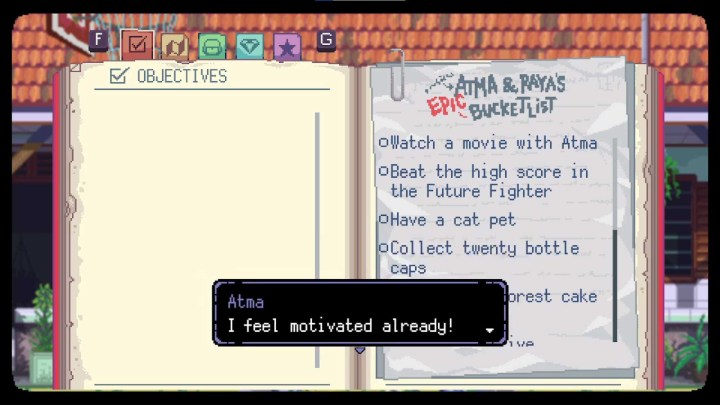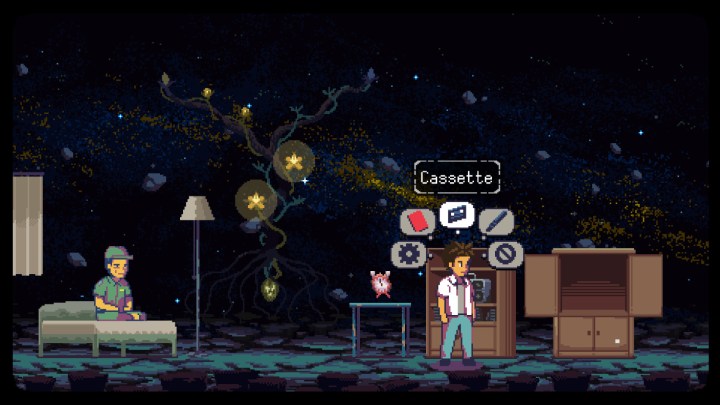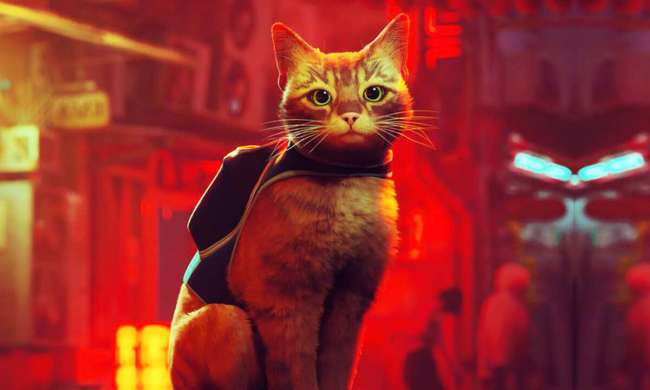There’s nothing I find more frustrating than when life simply slips out of my control. As hard as I try to make my best-laid plans, there’s always that chance they’ll be upended by something entirely out of my control. The feeling of helplessness that ensues can send me into an anxiety spiral. I’ll bargain with no one in particular to try and find a solution, wishing I could bend time and space to my will to keep my life on track.
It’s a little ironic that A Space for the Unbound, a new indie adventure game from Indonesian developer Mojiken, captures that feeling so well. Just as the game was approaching its launch in 2022, Mojiken discovered that its publisher, PQube Games, had allegedly received a diversity grant for the project and did not pay it to the developers. With developers left feeling hurt and exploited, A Space for the Unbound was indefinitely delayed at the end of the year, leaving its future uncertain. For a moment, it all seemed hopeless.
Fortunately, Mojiken found a way to move forward and launch its game this week, but the debacle is just a small example of how life tends to throw completely unexpected complications at us. That’s the exact tension at the heart of A Space for the Unbound, which follows young characters who feel their lives getting away from them. That theme makes for a moving, if melodramatic, story that plays out like a supernatural young adult novel.
The future is unwritten
A Space for the Unbound is a 2D adventure game set in late 1990s Indonesia. It begins as a simple “slice of life” story, following two high school sweethearts, Atma and Raya. As their high school years come to a close, the couple decides to create a bucket list and vows to check each item off together. Those tasks become the game’s overarching mission list, which includes such cute activities as seeing a movie together to watching fireworks. It’s all an idyllic vision of high school love … perhaps too idyllic.
While playing as Atma, I quickly discover that something’s off when Raya gives me a little money to buy movie tickets, but I spend a bit too much of it beforehand. When I arrive at the theater and learn I don’t have enough for two tickets, the screen wobbles and suddenly the ticket-taker informs me that the theater is running a “buy one, get one free” promotion. It’s a suspicious development, but who can argue with free movie tickets?

Thus begins the initially naturalistic adventure game’s descent into a sprawling supernatural epic. Though I’m controlling Atma, the story centers on Raya and her mysterious supernatural abilities. At first, they seem like harmless superpowers that she can use to save a situation. When Atma falls out of a tree while trying to rescue a cat, she slows time to save him from a hard fall. But as life becomes more complicated and Raya’s plans unravel, her desire to control her future becomes obsessive and dangerous — to the point of threatening existence itself.
That acts as the backbone for an emotional story about a young character struggling with depression and anxiety about her future. And while I found parts of it relatable as an adult, it especially calls back to my own high school angst. I’m transported to a time when I was terrified that I couldn’t picture my future. I constantly felt lost as college approached, and I knew my comfortable way of life was about to be upended. I wanted nothing more than to regain control. Raya gets that chance, but her story serves as a teenage cautionary tale about learning to live in the present, let go of the past, and be at peace with what’s unknown.
The bucket list
The gameplay mirrors its complex story shifts. Early on, everything feels simple. Players navigate a small town map, interacting with objects and chatting with characters in standard adventure game fashion. The bucket list is a clear quest log, one that I was burning through in the game’s opening two hours as I collected bottle caps and tried to find the fluffiest animal in town.
As the story goes on, though, that list becomes a burden. It slips away from me as Raya’s powers spin out of control. The pace at which I’m checking off tasks grinds to a frustrating halt. Later, I find that some of those tasks become corrupted by Raya’s powers, with something like “throw a party” taking a dark turn. The more Raya tries to take control of the future, the more she inadvertently perverts it. If A Space for the Unbound has an antagonist, it’s the bucket list and its strict set of objectives that create narrative anxiety.

There’s an added gameplay twist in the form of “spacediving.” Early on, Atma gains the power to jump into characters’ psyches and solve their problems by completing puzzles. Those are simple early on, like helping a tired character finally get sleep by closing a window and shutting off a lamp in their mind. That too becomes more complex though, making for some tricky late game puzzles that had me taking notes.
Everything in A Space for the Unbound comes back to the idea of control and how the struggle to regain it can make life more complicated. That unfortunately winds up being a little true of the game’s own story too. Its clear narrative spins out of control in its final act, as it evolves into an meandering supernatural narrative stuffed to the brim with angsty philosophical platitudes. In particular, its finale gives The Lord of the Ring: Return of the King a run for its money, with an overworked gauntlet of endings that twist Raya’s story into a pretzel. I left my playthrough wishing the story had taken its own advice and resisted the urge to tie everything up so neatly.

Though I was left feeling a bit exhausted by the 10-hour experience, A Space for the Unbound is the kind of game I wish I had played as a teenager. Rather than talking down to young adults, it empathizes with their anxiety. It visualizes how high-stakes those emotions can feel in the moment by using the language of supernatural fantasy. Sometimes, the end of high school truly does feel like an impending cataclysm, but A Space for the Unbound gently reminds its players that life goes on if you let it.
A Space for the Unbound launches on January 19 for PC, PlayStation 4, PS5, Xbox One, Xbox Series X/S, and Nintendo Switch.



